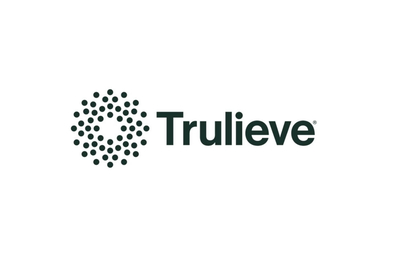New Pinal County location will host grand opening celebration Saturday, January 11 th
Trulieve Cannabis Corp. (CSE: TRUL ) (OTCQX: TCNNF ) ("Trulieve" or "the Company"), a leading and top-performing cannabis company in the United States today announced the opening of a new dispensary in Maricopa, Arizona .
A ribbon cutting ceremony will be held at 7:45 a.m. Saturday, January 11 , followed by a grand opening celebration featuring food trucks, music, partner giveaways, and special discounts.
"We are proud to bring Trulieve's high-quality, affordable products and elite customer experience to Maricopa ," said Trulieve's Chief Executive Officer Kim Rivers . "We are committed to helping customers in western Pinal County enhance their lives through cannabis."
The new Trulieve Maricopa, located at 44405 West Honeycutt Avenue, will be open 8 a.m. – 10 p.m. seven days a week, carrying a wide variety of Trulieve in-house brands including Alchemy, Avenue, Co2lors, Loveli, Modern Flower, Muse, and Roll One, as well as a broad assortment of products from popular partner brands.
In Arizona , Trulieve operates dispensaries in Apache Junction , Avondale , Casa Grande , Chandler , Cottonwood , Glendale , Guadalupe , Maricopa , Mesa , Peoria , Phoenix , Scottsdale , Sierra Vista , Tempe , and Tucson .
For more information on store activations and locations in Arizona, please visit www.trulieve.com/dispensaries/arizona .
About Trulieve
Trulieve is an industry leading, vertically integrated cannabis company and multi-state operator in the U.S., with established hubs in the Northeast, Southeast, and Southwest, anchored by leading market positions in Arizona , Florida , and Pennsylvania . Trulieve is poised for accelerated growth and expansion, building scale in retail and distribution in new and existing markets through its hub strategy. By providing innovative, high-quality products across its brand portfolio, Trulieve delivers optimal customer experiences and increases access to cannabis, helping patients and customers to live without limits. Trulieve is listed on the CSE under the symbol TRUL and trades on the OTCQX market under the symbol TCNNF. For more information, please visit Trulieve.com .
Facebook: @Trulieve
Instagram: @Trulieve_
X: @Trulieve
Investor Contact
Christine Hersey , Vice President of Investor Relations
+1 (424) 202-0210
Christine.Hersey@Trulieve.com
Media Contact
Phil Buck , APR, Corporate Communications Manager
+1 (406) 370-6226
Philip.Buck@Trulieve.com
![]() View original content to download multimedia: https://www.prnewswire.com/news-releases/trulieve-to-open-new-dispensary-in-maricopa-arizona-302345134.html
View original content to download multimedia: https://www.prnewswire.com/news-releases/trulieve-to-open-new-dispensary-in-maricopa-arizona-302345134.html
SOURCE Trulieve Cannabis Corp.

![]() View original content to download multimedia: http://www.newswire.ca/en/releases/archive/January2025/08/c3074.html
View original content to download multimedia: http://www.newswire.ca/en/releases/archive/January2025/08/c3074.html

